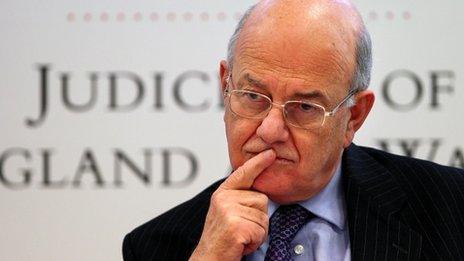Common: Jimmy McGovern takes on 'group' crime rule
- Published
Jimmy McGovern: "I tried to make people angry"
Scriptwriter Jimmy McGovern's latest film, which is being aired on BBC One, considers an aspect of the law he believes can lead to miscarriages of justice.
McGovern has a reputation for tackling complicated and emotive subjects.
In Hillsborough, he looked at the fall-out of the 1989 disaster; in Sunday, he investigated the repercussions of the Bloody Sunday shootings in Northern Ireland; and, most recently, in two series of Accused, he considered how people find themselves dragged into the legal system.
His latest film, Common, also considers an aspect of the law, that of joint enterprise or common unlawful purpose murder.
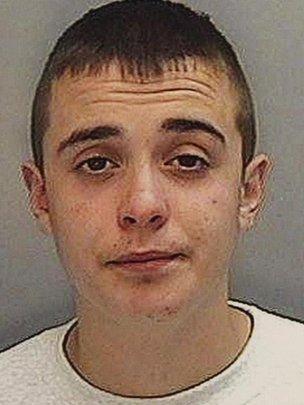
The case of Jordan Cunliffe inspired McGovern to look into the rule of joint enterprise
The Crown Prosecution Service say the rule of joint enterprise can be used when two or more people join in committing the same crime, when someone encourages or assists another in committing a crime or where someone commits a second crime in the course of a first, which others involved could have foreseen.
McGovern says he had never heard of it until he "got this letter out of the blue" from a woman who explained someone close to her was "inside for a long, long time" because of it.
"I was invited to her house and one person who was there was Janet Cunliffe, who is the mother of Jordan Cunliffe who is doing a long term for his part in the murder of Garry Newlove," he says.
Mr Newlove died in August 2007, external, three days after he was kicked and punched by a group of youths.
He had spent months trying to stop them vandalising his neighbourhood in Warrington.
Adam Swellings, Stephen Sorton and Jordan Cunliffe were jailed for life in January 2008 for his murder.
Ms Cunliffe says her son was "completely innocent" and that his conviction, which used the joint enterprise rule, was unsound.
"In joint enterprise, many people get convicted because they have encouraged or had foresight, but my son is blind - he couldn't have encouraged a fight or an argument that he couldn't see [and] he certainly couldn't stop it."
She says his eyesight was "so bad that he was scheduled for surgery on both his eyes prior to the trial and two weeks after he was convicted, he was given transplant surgery".
Jordan Cunliffe's application for permission to appeal against his conviction was thrown out by the Court of Appeal in 2010.
McGovern says the case made him look further into joint enterprise, which led him to find many examples of convictions he was uncomfortable with.
"I could tell you stories of people doing long stretches who weren't even at the scene.
"The dice is loaded against you. For instance, if you phone your friend and that friend goes out and kills a person, you have conspired, because you used a phone immediately prior to that incident.
"Then if you don't phone your friend for 24 hours, you are maintaining radio silence and that too is highly suspicious, that too is used against you."
He points to a letter he saw from Justice Minister Chris Grayling, which included the statement that "even a knowing look is sufficient".
Human rights lawyer Simon Natas, from campaign group Joint Enterprise: Not Guilty by Association, says there is a discrepancy between "what people are prosecuted for and what they are sentenced for".
"If someone has participated in a public order offence - affray or violent disorder for example - then they should be prosecuted for that.
"In quite a lot of joint enterprise cases, you look at them and think there's no justice if they are convicted of a public order offence, but the jump from that to murder is an enormous one.
"It's a question of making sure the punishment fits the crime and that has got out of kilter."
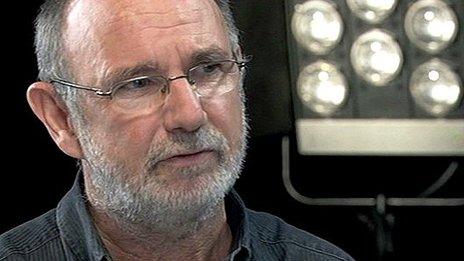
Jimmy McGovern says it is "virtually impossible" to fight a joint enterprise charge
A Ministry of Justice spokesman said there were "no plans to change the law in this area".
"Joint enterprise law has enabled some of the most serious offenders to be brought to justice.
"It ensures that if a crime is committed by two or more people, all those involved can potentially be charged and convicted of that offence."
The rule is backed by John Johnson, whose son Kevin was stabbed to death in May 2007, external after remonstrating with some youths in Sunderland.
Dean Curtis, Tony Hawkes and Jordan Towers were jailed for his murder later the same year.
Mr Johnson says he supported the joint enterprise conviction because "they acted as a group".
"They were all carrying knives - they knew what they were doing... although there was only one who actually stabbed our Kevin.
"The three them together out that night, they all got the bravado from each other.
"If there was only one out, probably nothing would have happened."
McGovern says another issue he has with joint enterprise is who it is used against - "poor black lads in London and up in the north, loads of working class kids".
"Poor people get lousy lawyers [and] nine times out of 10, injustice comes about because you get lousy lawyers. "
Common does not only dwell on the law though. McGovern also looks at the emotional impact of the crime on the victim's family, something which he says he needed to include.
"You get carried away with injustice, injustice, injustice, but there is no greater injustice than to lose a person to a crime of violence.
"It is absolutely horrendous and everything else pales into insignificance when compared to that.
"Nevertheless, that great injustice should not allow other injustices to be committed as well.
"Nobody wants to be soft on murder, but you shouldn't be soft on injustice either."
Common is on BBC One at 21:00 BST on Sunday and after that on iPlayer.
- Published1 April 2014
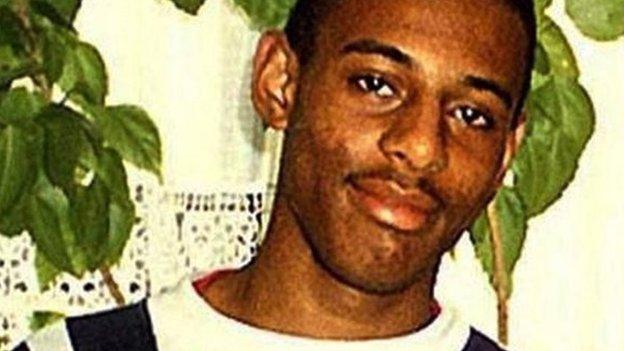
- Published24 April 2013
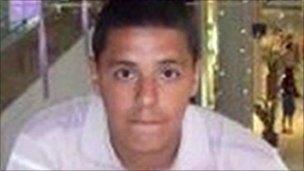
- Published6 December 2011
